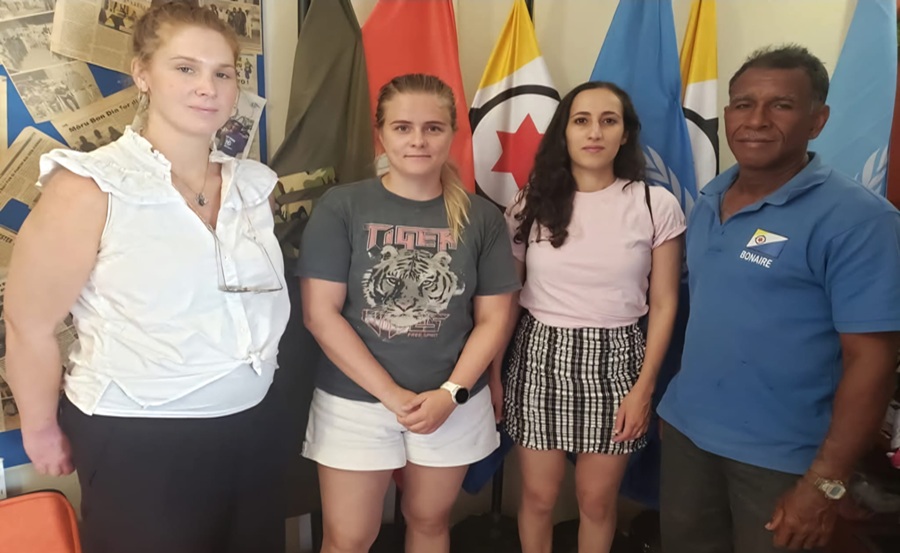James Finies, Founder of the Bonaire Human Rights Organization (BHRO) on the context of legal proceedings against the Dutch government over climate obligations by Greenpeace Netherlands.
A Greenpeace delegation met with Mr. James Finies at the BHRO office on August 21, 2021. Since then and thereafter Mr. Finies cautioned the leadership of Greenpeace against misusing or misrepresenting the climate crisis in the context of Bonaire. The Bonaire case concerns the right to self-determination and fundamental human rights and is highly political. Many of the petitioners involved are politicians, and such misrepresentation could suppress, divert, or confuse international attention away from the constitutional and international process to protect the people of Bonaire under Article 73 of the UN Charter as a Non-Self-Governing Territory.
“My mother and father, their parents, and generations before them were born and lived on Bonaire. For hundreds, thousands of years, our ancestors have fished its waters, hunted its lands, and planted its soil. Bonaire is not just our home, it is our identity, our history, and our responsibility to protect,” said Finies.
Native people of Bonaire have faced a rapid and systematic decline, since the forced dissolution of the Netherlands Antilles in 2010, the local population has been reduced from approximately 80% to only 30% in just fifteen years. Families are being displaced, rights denied, and voices excluded from decisions that affect the culture, future and island.
It is from this reality that I speak, not only as an individual, but as part of a people who refuse to be erased, a people who, since 2010, have been facing a critical “silent erasure of their existence and culture.” A people who are disappearing now, not because of a futuristic climate doomsday, but because of colonial laws and policies imposed by The Hague. It is in this context that I address Greenpeace actions and the deeper issue of environmental justice without self-determination.
This matter raises serious concerns regarding environmental justice, consent, and the right to self-determination of Bonaire’s people.
Misrepresentation and Lack of Consent – Greenpeace has cited Bonaire in climate lawsuits, but ignoring its colonial administration imposed without consent risks misrepresenting the island’s political and human rights reality.
Greenwashing Colonialism – By framing Bonaire simply as a “Dutch island” affected by climate change, Greenpeace inadvertently legitimizes colonial control and silences the island’s struggle for self-determination, turning a potential campaign for justice into greenwashing that perpetuates exploitation, exclusion, and environmental degradation.
True environmental justice cannot exist without decolonization and self-determination.- We therefore urge Greenpeace and all international organizations to: –
*Recognize Bonaire as a colonized, non-self-governing territory.
*Correct misinformation on constitutional status, incorrectly labeling Bonaire as a “special municipality” of the Netherlands, ignoring that its incorporation as a Public Entity was imposed without the consent of the people.
*Engage existing local expertise: Bonaire has more than ten environmental organizations with decades of experience, including the BHRO a human rights organization. Yet Greenpeace has bypassed these groups, focusing instead on political figures for global attention campaigns.
*Support indigenous and local governance as central to any climate justice framework.
*Ensure climate-related benefits, funds, or laws and policies directly empower Bonaire’s people, rather than distant European governments and institutions.
*To acknowledge the demographic and cultural marginalization of Bonaireans, whose population has declined from 80% to 30% in fifteen years, placing the community at serious risk of erasure.
Bonaire’s environmental and social challenges cannot be separated from its political disenfranchisement. Without self-governance, Bonaire cannot set its own environmental laws and policies, manage its resources, or decide how adaptation funds are used.
For climate action to be fair and effective, it must also be decolonial – restoring to Bonaire’s people the right to decide their own future, on their own land.






